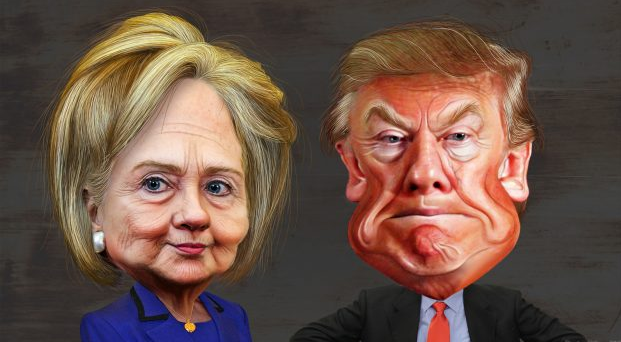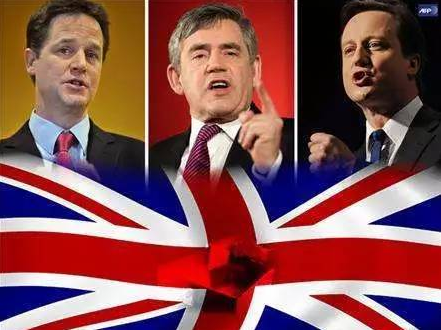[NetEase Smart News, August 18] Artificial intelligence has become a common tool in political elections, and some argue that AI played a crucial role in Trump's victory in the 2016 U.S. presidential race.

This is undoubtedly an opportune time to enter the field of AI engineering, especially for those looking to work closely with political figures. Historically, political candidates relied heavily on intuition rather than data-driven insights when running campaigns.
Today, however, big data is revolutionizing how political strategies are crafted. The next phase of political campaigning will undoubtedly see even greater integration of AI technologies. Machine learning systems analyze vast amounts of data to uncover patterns and make predictions, helping to optimize campaign efforts. For instance, these systems can evaluate legislative texts, sponsorship numbers, submission times, and other factors to anticipate congressional outcomes.
The U.S. Presidential Election

AI is now being deployed meticulously in election campaigns to engage voters and provide them with deeper insights into key political issues. This raises significant ethical concerns, particularly regarding manipulation. There is evidence suggesting that AI tools were instrumental in influencing voter behavior during the 2016 U.S. presidential election, including the use of personalized messaging tailored to individual voters' psychological profiles.
Cambridge Analytica, a data science firm, conducted a large-scale campaign targeting voters based on their psychological profiles derived from social media activity, consumption habits, and online interactions. While the technology itself is neutral, the misuse of AI in spreading misinformation and distorting public opinion presents a clear ethical challenge.
The 2017 British General Election and Brexit Referendum

In the lead-up to the Brexit vote, it remains unclear how AI might have influenced public opinion or played a role in the outcome. Similar to the U.S., the 2017 British election saw the widespread deployment of political bots spreading misinformation across social media platforms like Twitter and Facebook.
These bots, designed to mimic human users, actively spread one-sided propaganda, creating the illusion of broad public support. This tactic is becoming increasingly common in attempts to sway public opinion and skew political discourse. These bots often target specific demographics, highlighting negative information about opponents to discourage voter turnout.
The French Presidential Election

During the 2017 French presidential election, similar tactics were employed, with bots flooding social media with misleading information about Emmanuel Macron’s financial dealings. This strategy aimed to portray him as dishonest, a tactic frequently used by bots to dominate online conversations.
While AI can be misused to mislead and confuse, it also holds immense potential to support democratic processes. Political robots could issue warnings when users share false information, helping to expose widely circulated lies. AI can also facilitate better listening toæ°‘ä¼—çš„æ„è§ï¼Œç¡®ä¿ä»£è¡¨ä»¬æ¸…æ™°å¬åˆ°é€‰æ°‘的声音。基于这些洞察,å¯ä»¥å¼€å±•ç²¾å‡†çš„å¾®ç›®æ ‡æ´»åŠ¨ï¼Œå¸®åŠ©é€‰æ°‘ç†è§£å„ç§æ”¿æ²»é—®é¢˜å¹¶å½¢æˆè‡ªå·±çš„观点。
People are often overwhelmed by the barrage of political information on TV and in newspapers. AI can help them identify each candidate's stance on issues they care about most. For example, if someone is interested in environmental policies, AI tools can assist in understanding each candidate's perspective on the environment. Personalized political ads should serve the electorate by providing more information, not undermining their trust in the electoral process.
The use of AI in politics is here to stay, given its immense value to campaigners. However, there is a responsibility to use AI ethically and wisely to ensure it strengthens rather than undermines democracy. Politicians must commit to using AI responsibly to shape voters' opinions without compromising democratic principles.
(Compiled by Slava Polonski, INDEPENDENT. Translated and compiled by NetEase Smart Compiler Platform. Follow NetEase Smart Public Account for the latest AI industry reports.)
Pay attention to NetEase Smart Public Number (smartman163) for the latest updates on the AI industry.
xpon onu with voip,1ge voip gpon ont,single band wifi gpon ont,gpon onu with voip,ax3000 dual band wifi onu
Shenzhen Runtop Technology Co.LTD , https://www.runtoptech.com
![<?echo $_SERVER['SERVER_NAME'];?>](/template/twentyseventeen/skin/images/header.jpg)